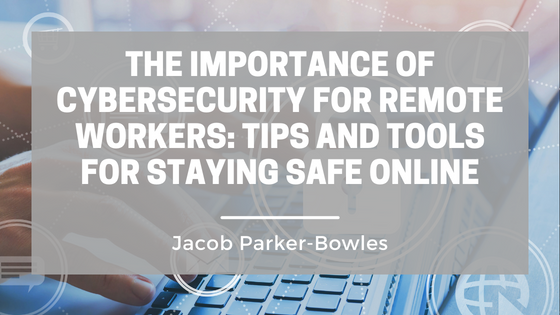As more and more people work remotely, the importance of cybersecurity has never been more critical. With an increase in remote work comes an increase in online threats. Cybercriminals are always looking for new ways to exploit vulnerabilities and gain access to sensitive information. In this blog, learn more about the importance of cybersecurity for remote workers, as well as provide tips and tools for staying safe online.
Why is Cybersecurity Important for Remote Workers?
Remote workers are more vulnerable to cyber attacks than those who work in a traditional office setting. This is because remote workers often use personal devices and unsecured networks to access work-related information. Additionally, remote workers may not have access to the same level of IT support and security measures as they would in an office environment.
Cyber attacks can result in the loss or theft of sensitive data, financial loss, and reputational damage. For businesses, a cyber attack can be costly and can even lead to bankruptcy in extreme cases. For remote workers, a cyber attack can result in job loss, financial loss, and a damaged reputation.
Tips for Staying Safe Online as a Remote Worker
- Use Strong Passwords: Always use strong passwords for your online accounts, and never reuse passwords across different accounts. Consider using a password manager to generate and store complex passwords.
- Keep software Up-to-Date: Ensure that your software is always up-to-date with the latest security patches and updates. This includes your operating system, antivirus software, and any other software you use for work.
- Use Two-Factor Authentication: Two-factor authentication provides an extra layer of security by requiring users to enter a code sent to their mobile device in addition to their password.
- Use a VPN: A virtual private network (VPN) encrypts your internet traffic and routes it through a secure server, protecting your online activity from prying eyes.
- Be Wary of Phishing Scams: Phishing scams are designed to trick you into giving away your personal information. Be wary of unsolicited emails, and never click on links or download attachments from unknown sources.
Tools for Staying Safe Online as a Remote Worker
- Antivirus Software: Antivirus software can protect your computer from malware, viruses, and other malicious software.
- Password Manager: A password manager can generate and store complex passwords for your online accounts.
- VPN: A VPN encrypts your internet traffic and protects your online activity from prying eyes.
- Two-Factor Authentication: Two-factor authentication provides an extra layer of security by requiring users to enter a code sent to their mobile device in addition to their password.
Cybersecurity is crucial for remote workers. As a remote worker, it’s important to take the necessary steps to protect your online activity from cyber threats. By following the tips and using the tools mentioned in this blog, you can significantly reduce your risk of falling victim to a cyber attack. Remember, staying safe online requires constant vigilance and a proactive approach to cybersecurity.

